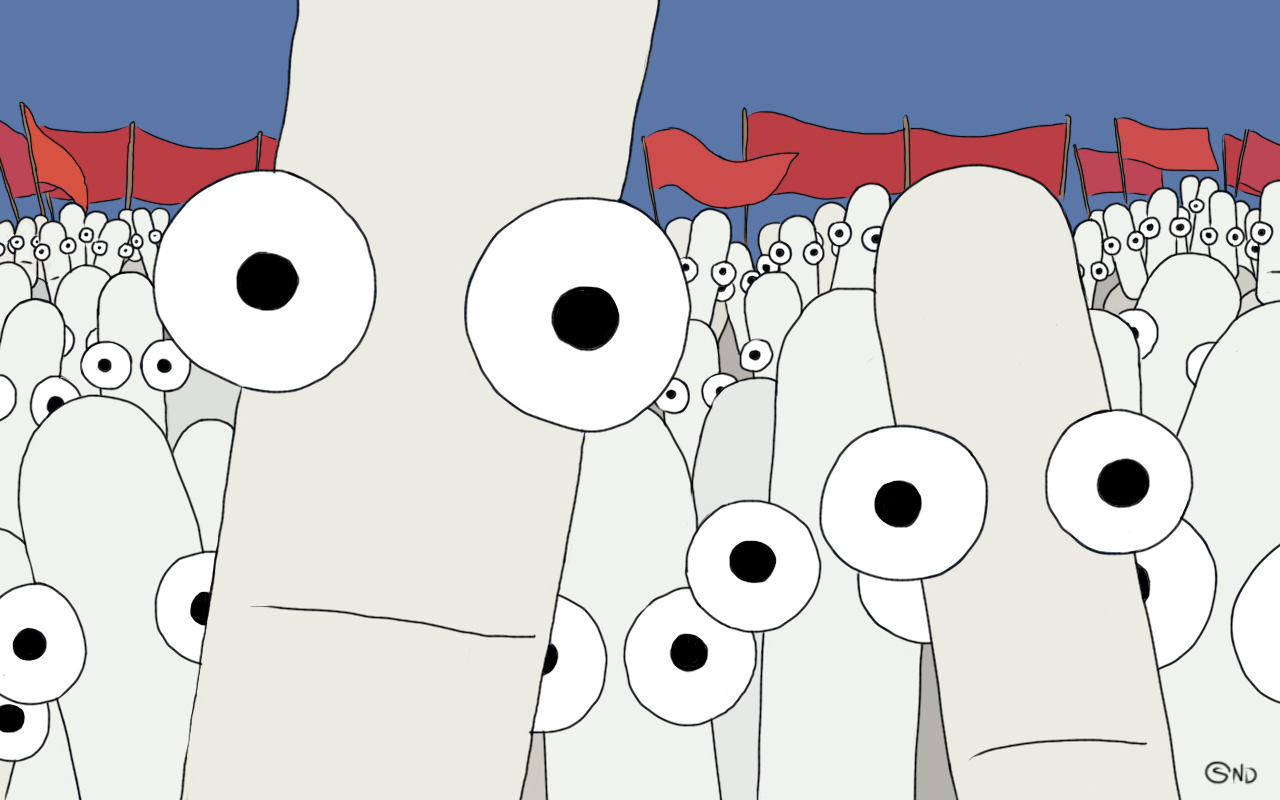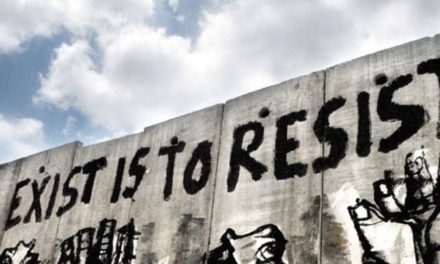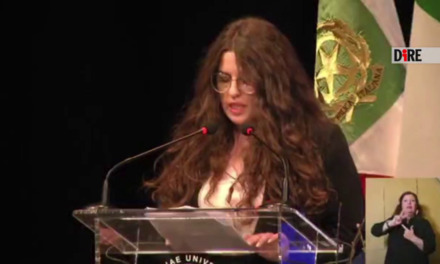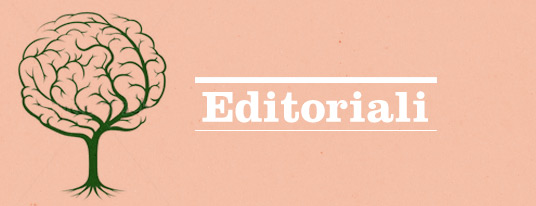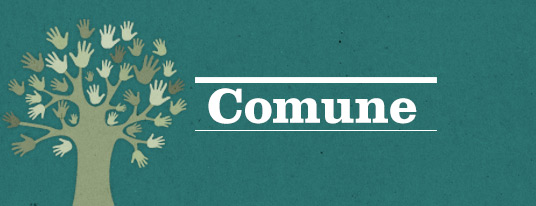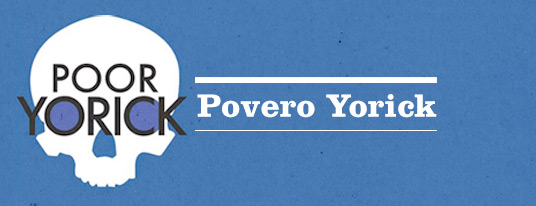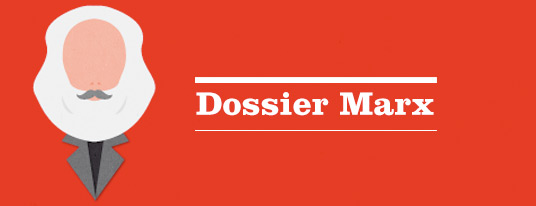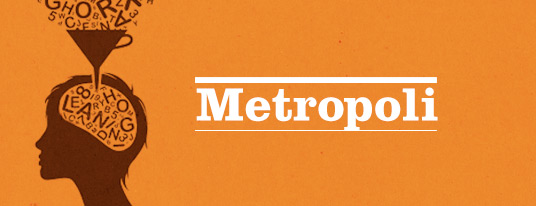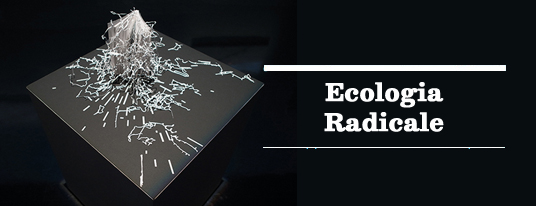of SANDRO MEZZADRA, BRETT NEILSON.
The present debate on communism cannot proceed without a sense of history. As Étienne Balibar (2013: 15) writes in the second volume of The Idea of Communism, “there have been communists, this is not an entirely new race on earth.” To insist on this is not to look backward or dwell in the past of an “actually existing” communism that expressed itself in the political forms of state and party. Rather it is to take account of what Marx called the material conditions for communism and to assess how their relative presence and absence has historically affected the degree to which communism has appeared either as an idea or a political movement. We welcome the politicization of the idea of communism that marks the two books that provide the focus for this special issue: Bruno Bosteel’s The Actuality of Communism (2011) and Jodi Dean’s The Communist Horizon (2012). The close engagement of these works with concrete political scenarios—the Bolivia of Álvaro García Linera in the first instance and the Occupy movement in the second—demonstrates the degree to which discussions of the communist idea cannot be separated from real vistas of struggle. Nonetheless the tension between what John Roberts (2013: 9) has recently identified as the two names of communism—“communism as a name in politics and communism as a name in philosophy”—provides the break that enables and propels such discussions. The question is whether a resolution of this tension is possible or desirable in historical, present, or even future stagings of communism.
The year 1989 still provides an important threshold against which current discussions of communism are cast. To our knowledge, it was in the context of the tumultuous world events of that year that the notion of a “communist horizon,” drawn upon by both Bosteels and Dean, first appeared. Although Bosteels attributes this concept to García Linera in a 2008 interview with Pablo Stefanoni, and Dean, in turn, draws on Bosteels, we cannot help but note an earlier and possibly entirely separate use of this term in the debates that wracked the Italian Communist Party (Partito Comunista Italiano, PCI) in the year of the fall of the Berlin wall. In the wake of the infamous svolta della Bolognina—in which the general secretary of the PCI, Achille Occhetto, declared the need to dissolve the party and comprehensively reorganize the Italian Left—the philosopher Cesare Luporini, at the time immersed in the study of the poet Giacomo Leopardi, published an article in Il Manifesto that vehemently opposed the transformation of the PCI into a social democratic force.1 Celebrating the crumbling of the USSR and other Eastern European regimes as an event with planetary significance and liberatory effects, Luporini argued that none of these societies had ever embodied a real communism. He then explained that communism for Marx had a double significance: first as a “real movement” and second as a “horizon” for the possible evolution of humankind. Today, Luporini insisted, it is only possible to speak of communism as a “horizon,” which is to say as a means of grappling with the novel circumstances of the present both from the geopolitical perspective and from the point of view of the human interface with nature. Far from seeing the transition from capitalism to communism as necessary, Luporini wrote, “we must see it as a potentiality and possibility, that is in another categorical dimension.” It is not necessary for us to delve into the polemic occasioned by this article, although it is interesting to note that Giovanni Berlinguer—the brother of former PCI General Secretary Enrico Berlinguer—replied to Luporini by attempting to turn a reading of Leopardi’s famous poem “L’infinito” (“The Infinite”) in favor of Occhetto’s proposal (see Mele 2009). It is more important to note how the notion of the communist horizon emerges strongly with the fall of “actually existing” regimes, which, we can agree with Bosteels and Dean, failed to realize historically or materially the communist idea.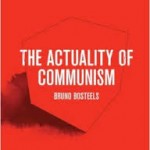
The strong precedents for the present debate on communism in the convulsions of 1989 lead us to ask how much things have changed in the past twenty-five years. Undoubtedly this period has seen a deepening of capitalism on the global scale with heterogeneous effects on the organization of the state, the production of space and time, the opening of new frontiers of accumulation, and the forging of new relations between sovereignty, governance, and territory. The geographical disruption that lies at the heart of capitalist globalization has produced new lines of division and conflict in a scenario where economics has seemed to eclipse politics. The assessment of Chinese social critic Wang Hui (2009) that the current period is one in which processes of depoliticization have triumphed is applicable not only to the Chinese party-state. Across the world, we have seen the ascendency of market logic over political reasoning, the rise of technical discourses and practices of developmentalism, and the restructuring and financialization of capital at the expense of debates concerning political action and values. The current discussion of communism seems a deliberate attempt to reinstate the primacy of politics over economics. Yet how is this to be achieved? Communism is not a magic word, and, while we may recognize the necessity as well as the seductions of theory, there is a risk that the communism of philosophy merges into something like what sociologist Robert K. Merton once called the “communism of the scientific ethos”—i.e., an imperative to share the fruits of intellectual labor and knowledge without a fundamental assault on property relations (see Merton 1942: 123). By contrast, we insist that the debate on communism must engage with three unavoidable questions: of property, internationalism, and subjectivity. In doing so, this debate must depart from concrete struggles for the common, which, in the period since 1989, have been as widespread as they have been multiple.
At an important moment in The Actuality of Communism, Bosteels (2011: 39) describes communism as “something that is always already here, in every moment of refusal of private appropriation and in every act of collective reappropriation.” We agree with this observation but wonder whether it can bear the burden of definition or the weight of history. Bosteels arrives at this formulation by contrasting the Hegelian concept of Wirklichkeit (actuality) to the Kantian notion of the regulative idea drawn upon by Alain Badiou (2008: 35) in his discussion of the “communist hypothesis.” Although he seeks to drain the concept of Wirklichkeit of its dialectical baggage, Bosteels (2011: 39) posits it as part of thought and existence as well as part of the historical given to highlight its necessary tension with possibility and present it as “an ongoing and open-ended task for politics.” It is the “actuality of the possibile,” as Slavoj Žižek (1993: 157) puts it, which thus becomes the main philosophical reference for the reinvention of communism. Marx and Engels (1998: 57) define communism as a “real [wirklich] movement,” neither a “state of affairs which is to be abolished” nor “an ideal to which reality [will] have to adjust itself.” While it is important for us to reaffirm the relevance of this Marxian definition, it is also true that it is merely negative, focusing on the disruptive and critical power of communism (“the real movement which abolishes [aufhebt] the present state of things”).
Notwithstanding occasional references to the planned organization of economy and society in later years, Marx’s definition of communism would not change much for the remainder of his writing career. The question asked by Bosteels (2011: 19–20) about the specific actuality of communism, about the conditions for a “unified front of common affirmation and over-coming,” is therefore crucial. The real challenge for us is to develop the affirmative power of communism without stepping back to an image of communism as an “ideal,” which is to say without losing track of the radical innovation in the theory of politics produced by the qualification of communism as a “real movement.” From this point of view, communism cannot be defined as a “regulative idea,” at least if we do not want to inscribe it as one of the many variants of neo-Kantianism and ethical socialism with which history has presented us since the late nineteenth century. To be honest, we doubt that the metaphor of the “communist horizon” is entirely free from this risk (especially when, as in the case of Luporini, it is separated from the “real movement”). Reinhart Koselleck (2004: 261), who built his theory of history on the concept of a “horizon of expectation” and its manifold tensions with the “space of experience,” tells in Futures Past a political joke of his age that is also a case in point for our argument. It is about a speech in which Khrushchev declared: “communism is already visible on the horizon.” Asked from the floor about the meaning of “horizon,” he suggested to “look it up in a dictionary.” Once at home the questioner found the following explanation: “Horizon, an apparent line separating the sky from the earth, which retreats as one approaches it.”
Property, Internationalism, and Subjectivity
To be clear, we share much of the criticism of “speculative leftism” and “leftist melancholia” provided by Dean and Bosteels. Picking up a phrase introduced by Slavoj Žižek, we offer in our Border as Method a critique of “pure politics” that is not far from Dean’s and Bosteels’ concerns (see Mezzadra and Neilson 2013a: chap. 8). To this we should add that we are not particularly enthusiastic about the distinction between politics and “the political” which, be it following Carl Schmitt or Hannah Arendt, has enjoyed in recent years a relevant degree of success in “radical” political theory (see Mezzadra 2011). Still, we are more cautious with regard to the critical discussion of the relation between ontology and politics, particularly in the work of Bosteels (2011: chap. 1). Building upon this discussion, Susan Buck-Morss (2013: 57) even goes so far to write: “the first point: politics is not an ontology. . . . The ontological is never political.” Briefly put, it seems to us that the criticism of “post-foundational ontology,” labeled by Bosteels (2011: 64) as “the spontaneous ideology of late capitalism” for its complicity with the desubstantialization of ontology connected with the operations of “transnational finance capital,” risks leading to a situation where we lose track of the multifarious and powerful alternatives that run through the understanding of “ontology.”
The ghost of Heidegger haunts Bosteels’s critical discussion of ontology (as was also the case with Adorno, who is indeed one of his philosophical references in this regard). The main question he asks in front of the “ontological need today” has to do with “the fate of the various ‘others’ of ontology, that is, those domains from which the ontological dimension splits off, including the ontic, the empirical, and the epistemological, but also the social, the dialectical, and the historical-materialist” (Bosteels 2011: 68). It seems clear from this quotation that ontology is inscribed for Bosteels in the theoretical field of the Heideggerian “ontological difference.” Nevertheless, this is not the only possible use of ontology. The two names that are mentioned to introduce the criticism of the “ontological turn” in The Actuality of Communism (40–41)—Chantal Mouffe and Antonio Negri—point themselves to opposite understandings of “ontology.” Bosteels is of course aware of this, although his own criticism focuses more on the “Heideggerian-Lacanian” strand of contemporary critical thought than on what he calls the “neo-Spinozist or Deleuzian ontology of substance as pure immanence” (47). But we do not want to dwell here on this alternative. Suffice it to recall Georg Lukács’s late work, The Ontology of Social Being (1978), to demonstrate that an alternative, integrally materialist, view of ontology—predicated on an investigation of the ontological character and stakes of the Marxian critique of political economy—is possible.
For us, speaking of an ontological rooting of communism precisely means to complete our criticism of “pure politics,” to emphasize what Ranabir Samaddar (2007) calls the “materiality of politics.” It means locating any politics of collective liberation within the scene of what we have analyzed in Border as Method as fabrica mundi (see Mezzadra and Neilson 2013a: chap. 2)—in other words, within the material practices and struggles that fabricate the tissues of being, within what Marx and Engels called in The Holy Family the “pains” and “pleasures” connected with the “essential activity of the real subject” engaged in producing the world (Marx and Engels 1956:214). The powerful image of a “mass being” (massenhaftes Sein) that we take again from The Holy Family nicely captures the philosophical implications of such a materialist ontology (73). The very question of the actuality of possibility (which is, as we have seen, the question of the “actuality of communism” for Bosteels) appears from this point of view an eminently “ontological” question. And it is from this point of view that we now turn to the related questions of private property and subjectivity.
It seems almost superfluous to state that communism is a movement for the abolition of private property, but this is a point that should not be forgotten. The question to be raised, with respect to the above discussion of “ontology,” is about the extent to which such abolition gives rise to an affirmative construction of the common. In the final chapter of Border of Method, we explore this question from a number of angles, including the legal basis for private property, the historical and present role of so-called primitive accumulation in establishing the private and public spheres, the structural parallels between state sovereignty and private property, and the challenges faced in translating between heterogeneous struggles for the common. An important starting point for us is Hugo Grotius’s argument in De Jure Belli ac Pacis (first published in 1625) that “all things . . . were at first common” (Grotius 2005: 420) as well as his associated identification of occupation (occupatio) as a source for the establishment of property. Without insisting too much on semantic resonances, it is interesting to register the inversion that links this account of the origins of property to the contemporary politi-cization of occupation as a means of striking against the domination of private property and making the common.
For Dean, the rule of private property is linked to contemporary processes of proletarianization and expropriation. This implies a dynamic view of class composition that countenances experiences of exploitation and dispossession in ways that go beyond a simple counterpositioning or periodization of these concepts. Her focus on instances of expropriation and exploitation in the context of what she calls “communicative capitalism” is one of the strong points of The Communist Horizon. Dean describes “an interconnected yet distinct exploitation of the social substance” (136). To make sense of these patterns she refers to “the instability of the distinction between the common and commons” (142). This focus is important for her both from the point of view of identifying the frontiers of current accumulation processes (which are increasingly crisscrossed by moments of appropriation) and from the perspective of an analysis of the struggles and divisions that emerge from and within the common. This again has affinities with our argument in Border as Method, particularly at the point in which we insist that “the building of commons provides the only grounds on which the common can be generated” (Mezzadra and Neilson 2013a: 300). Without going into the details of this argument, we can note that the question of capital’s contemporary means of extraction and exploitation is inseparable from the challenges and stakes of political subjectivity. The question of communism revolves around this nexus.
To return to the point above about the ambivalences of occupatio with respect to appropriation and its contestation, we can recall Dean’s account of the Occupy movement and its introduction of “a new political subject into the scene” (213). The experiences of Occupy provide an important reference point for contemporary scenarios of struggle, but it is crucial to place them in a wider perspective both historically and geographically. Not only the internal diversity and the multiple locations of Occupy but also the way in which we make sense of its relation to past and parallel movements are relevant here. The question here for us is less about division than about translation, which is to say about the entanglement of processes of division and exclusion with those of differentiation, inclusion, and connection. Translation in this context refers to a bundle of social practices that continuously work the boundaries between such processes and prepare the ground for the emergence of the common as a concrete political potentiality. It should be clear that when we speak of translation we do not refer to merely cultural or linguistic practices but rather to a set of political techniques that emerge within and between struggles to deal with the slipperiness and fractures across practices, concepts, material settings, and programs of radical social transformation. What we have in mind is a contested, uneven, and continuing process of translation that confronts the shifting political geography of the present and the heterogeneity of struggles that unfold across established and emerging borders. As we learn from Naoki Sakai (1997), translation in this sense cannot be separated from the production of subjectivity.
Such a practice of translation requires a radical rethinking of classical vistas of internationalism from the point of view of a communist politics. At stake is neither the formal alliance of nationally based parties or movements nor the mere practice of solidarity across economic and political divides such as the global North and South. A politicization of the concept and practice of translation provides strategies for organization that work with and through the deep heterogeneity of struggles and subjects. It provides resources for inter-referencing across social and geographical boundaries and forcing established subjectivities to confront and rethink their own positions and processes of emergence. In doing so, translation also tests the limits of communication and opens possibilities for making the common that elude an orientation toward any pregiven universalistic horizon. What we want to emphasize, beyond easy invocations of connection and bridge building, is the difficulty of such an organizational task, which begins from an encounter with multiplicity and difference rather than feigning to produce or discover them. The intersection of the politics of proletarianization and expropriation with those of race and gender is a crucial moment in this regard.
A Communist Politics Not Centered on the State
This leads us to the question of the “multiple forms of political organization that seek to give body” to communism (Bosteels 2011: 14). This is for us a crucial question indeed. We admit that we share with Dean the unease with the emphasis on horizontality and micropolitics circulating within many contemporary social movements, as well as with the kind of naive criticism of representation nurtured by that emphasis (Dean 2012: 225–26). Nevertheless we are convinced that the criticism of political representation is a key feature of a communist politics—to put it even more sharply, we are convinced that there is no communist politics without a criticism of political representation. There is no contradiction here with the unease we have just declared. When Marx and Engels famously wrote, with a reference to the statutes of the First International, that “the liberation of the working class must be achieved by the working class itself” they clearly set the stage for a communist politics conceived of as a radical criticism of representation. At the same time, we believe that because Marx and Engels were not naive, they were also acutely aware of the difficulty and even of the paradoxical nature of the task they were outlining. The “liberation of the working class” is presented here as the result and the effect of the process through which the working class constitutes itself as a political subject. It is easy to understand that this process of political subjectivation is bound to be crisscrossed by the reproduction of moments and of the logics of representation. History provides us with plenty of examples of subjects—a party, a leader, a union, a movement, a state—that claim to speak and act “in the name of” the working class. It is important to note that there are cases in which these subjects play a positive and even necessary role. But the crucial point for a communist politics is the re-opening of the critique of representation within the new conditions produced also by the action of such subjects. This is for us the critical “supplement” provided by communism to any politics of emancipation—an antidote against the crystallization of governmental regimes and social forms that facilitates the reproduction not merely of representation but also of domination and exploitation. 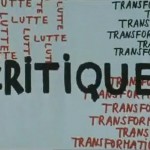
It is the link between such a (not naive) criticism of representation and the multifarious struggles that confront the social relation of capital in concrete situations that for us comprises a communist politics. We do not dismiss the problem of the party—the politicization of “a part,” as Dean (2012: 245) puts it. At the same time, we do not know whether the party will again be the name of the solution to this problem. The burden of history is particularly heavy here. On one hand, the heterogeneity of the composition of living labor (in Bolivia no less than in the United States) challenges established patterns of solidarity and political unity that have shaped the theory, action, and program of revolutionary parties in the twentieth century. It is not by accident, we think, that a “party” has not emerged as a leading political force from the most important experiences of struggle in recent years, from the uprisings in Tunisia and Egypt to the Spanish indignandos and the Occupy movement in the United States, from the Gezi Park movement in Turkey to the June 2013 uprisings in Brazil, just to mention a few examples. Rather, we are confronted here with “hybrid” constellations, mixing up features of social movements, unions, and leftist fronts. The crucial question of political organization remains completely open in the face of these experiences. Addressing this question means confronting not only the limits of these experiences but also their novelty.
On the other hand, the history of the revolutionary party in the twentieth century (and particularly the history of the Bolshevik Communist Party) is part of a wider historical experience, characterized by a “construction of socialism” entirely centered on the state. This is not the place to ask whether this experience was consistent with the original theory of the party developed by Lenin—which we think was clearly not the case. It is more important, firstly, to recall that the question of the transformations of the state, along with the transformations of class composition and the actual development of workers’ struggles and revolutionary movements, was key to the great debate on the Organisationsfrage within the labor movement in the early twentieth century (see Bologna 1972). Secondly, there is a need to take stock of the fact that both the communist and the social-democratic politics forged in that debate ended up, at least in their respective mainstreams, assuming the state as the fundamental actor in the process of social transformation. The same is true for later versions of anticolonial, nationalist, and developmentalist socialism. To be sure, it would be necessary to go into the details and the differences of respective concrete experiences to fully appreciate the complexity of these developments. It is of course important to remember that these mainstreams have been powerfully contested, both in theory and in practice. The fact remains that socialism and communism were, in the twentieth century, and remain, in the popular imaginary in many parts of the world, extreme instances of a politics centered upon the state.
The sense of history we invoked at the beginning of this article is particularly important in this regard. We do think that there is no hope for a communist politics today without a rigorous historical and political criticism of this legacy. And it is for this reason that tracing a sharp line of demarcation between socialism and communism definitely seems to us more important than it seems to Bosteels (2011: 20–21). Just as we say above that there is no communist politics without a criticism of representation, we also want to affirm that communism, to pick up a phrase from Raquel Gutiérrez Aguilar, necessarily is a “politics not centered upon the state [una política no estadocentrica]” (Brighenti 2013). By saying this we do not want to rehearse once again the tired debate on the withering away of the state, nor are we proposing an abstract or ideological critique of the state. We are, rather, convinced that there is a need to go beyond what Michel Foucault (2008: 76) once called “state-phobia,” which is too often the mere flipside of an uncritical statephilia. Critical debates on politics are often dominated by an opposition between such specular attitudes. It is therefore important for us to note that the “state” is not code for “institutions” or “collective power,” but is instead the name of a historical form of monopolization of power (in Weberian terms) that has dominated modernity through its unstable but constitutive alliance with capital.
In Border as Method, we emphasize the tensions and transformations the state is currently undergoing in many parts of the world due to the pres- sure of capitalist globalization. Engaging a dialogue with some of the protagonists of the debate on this topic over the last two decades (from Hardt and Negri to Saskia Sassen and Gunther Teubner, just to name a few), we try to shed further light on processes of disarticulation of that unity of territory, people, legal order, and sovereignty that was posited by classical legal and political theory as the defining feature of the state. We stress that the unity of the state itself (or of its institutions) has increasingly come under duress. At the same time, we are perfectly aware that the state is not going to disappear (to “wither away”) in the near future. In different ways that have to be investigated in concrete situations, we recognize that the state will continue to play important roles in articulating the logics of contemporary capitalism as well as in the government of territories and populations. And we do not reject in principle that the state can be in some parts of the world a site of struggle—that it can be “occupied” by a politics of transformation, or that some of its structures can be used in the struggle against capitalism.
We are therefore far from proposing a “weak” politics of movements against state. To put it clearly, the above reference to Raquel Gutiérrez Aguilar, former associate and now a critic of Álvaro García Linera, is not intended to introduce some version of “communitarian and anti-statist” communism (see Bosteels 2011: 264). What we realistically want to contend is something else: the state is not powerful enough to confront contemporary capitalism; in order to reopen politically a perspective of radical transformation, something else, a different source of power, is absolutely necessary. This is for us the problem of a communist politics today, understood as a “politics not centered upon the state.” It is the construction and the rooting of a “collective power” and of “institutions” outside (although not necessarily against) the state as a fundamental condition even for a project of transformation that aims at using the state. A communist politics is therefore necessarily for us a politics of autonomy.
The case of Latin America, dealt with by Bosteels through his analysis of the work of García Linera in the concluding chapter of The Actuality of Communism, is a good case in point in this regard. The Bolivian experience needs to be understood on a regional scale, which means within the wider framework of struggles and political experiments that have reshaped Latin America over the last decade (see the essays in Reyes 2012). The end of the “Washington consensus,” which was materially produced by a series of insurrectional movements in the region, has opened up the space within which several (profoundly heterogeneous) new “progressive” governments have emerged. Far from considering these movements and governments under the rubric of “sheer prehistory,” or “primitive communism” (Bosteels 2011: 12), we are convinced that their experiences are crucially important for a rethinking of the agenda of a politics of liberation for the twenty-first century. At the same time, there is also a need to take stock of the limits of these experiences, which are conspicuous in many Latin American countries. On one hand, as the critical debate on neo-extractivismo emphasizes in particular, the developmental pattern has not been significantly altered by the new “progressive” governments (see Mezzadra and Neilson 2013b). This has relevant implications not merely from an environmental point of view, but also for the policies of “social inclusion” fostered by these governments and for the relation between state and capital. On the other hand, the process of regional integration, posited by several protagonists of these experiences (among them by García Linera) as an important condition for the government of “interdependence” and insertion in the world market, seems to be challenged by the re-emergence of “national interests.”
More generally, although with different modalities in different countries, the whole process of transformation in recent years has been recen- tered upon the state. This has led to the dismissal of some of the most innovative experiments in a field of governmentality capable of being nurtured by the proliferation of autonomous social practices and centers of power (see Mezzadra 2013). In many Latin American countries, the “socialist,” “developmentalist,” “radical democratic” rhetoric of governments is met by processes of radical individualization and by the spread of what Verónica Gago (2013) calls the financialization of popular life and “neo-liberalism from below.” In the face of such developments, what we have tried to define as a communist politics emerges as the blind spot of the Latin American experiences of the last decade. While we are aware of the fact that we have defined it in terms of a problem rather than a solution, addressing such a politics “in the truly internationalist perspective” (Bosteels 2011: 14) that we share with Bosteels and Dean becomes particularly urgent for contexts well beyond that of Latin America.
Political Practices of Translation
We are confronted then with a situation in which both the fractured temporality of history and the proliferating borders of current political and economic geography shape the form, expression, and organization of a communist politics. This implies a rooting of the “actuality” of possibility that communism enacts, not along the line of a constantly disappearing horizon but in the deep and material tissues of being that compose contemporary experiences of class and subjectivity. Such an approach may appear paradoxical in the context of unfolding historical processes that seem to have cemented the dominance of economics over politics and the deepening of the social relation of capital across different spaces and scales. For many, it feels inevitable that under these conditions communism will emerge more as a “name in philosophy” than a “name in politics.” Yet here the charge of inevitability or determinism that is frequently and, in our opinion, inaccurately leveled against the sometimes optimistic discussions of a coming communism in Marx flips around to characterize precisely the opposite—a sense of resignation and the closing of alternatives.
It is the strength of the work of Bosteels and Dean that they face this situation without recourse to easy invocations of hope or appeals to the mes- sianic blast that for Walter Benjamin disrupts the horizon of history. The rooting of their discussions in powerful contemporary struggles provides a generative source and guide for the philosophical moment of their arguments. We also place an emphasis on the building of the material conditions for communism through organization and struggles. But the question of organization, for us, also encompasses the problem of the relations between struggles. It is not at all clear, for instance, what the Occupy movement has to do with the Bolivia of García Linera or how struggles for “natural” commons such as water relate to struggles against rent and gentrification in urban environments or struggles against the private appropriation of knowl-edge and information in electronic networks. We seek to discern social and political practices of translation that can unite such struggles in heterogeneous but always negotiable ways. This suggests a way of moving between the ontological and organizational aspects of our argument. There is a need to drain the description of communism of all forms of eschatology or utopianism. Yet it is also necessary to give it an affirmative and constitutive content. The grounding of such content in material struggles is vital because if communism is presented merely as an ideal or hypothesis, it will ultimately be difficult to convince people to fight for it, whatever the subjective form the struggle might take. The actuality of communism cannot be abstracted from the materiality of politics. This, in the end, is what we share with Bosteels and Dean.
References
Badiou, Alain. 2008. “The Communist Hypothesis.” New Left Review 49: 29–42.
Balibar, Étienne. 2013. “Communism as Commitment, Imagination, and Politics.” In The Idea of Communism 2: The New York Conference, edited by Slavoj Žižek, 13–35. London:Verso.
Bologna, Sergio. 1972. “Class Composition and the Theory of the Party at the Origin of the Workers-Council Movement.” Telos 13: 4–27.
Bosteels, Bruno. 2011. The Actuality of Communism. London: Verso.
Brighenti, Maura. 2013. “Serie: ‘Nuevo conflicto social. Extractivismo y política de lo común’: Entrevista a Raquel Gutiérrez” (“Series: ‘New Social Conflict. Extractivism and Politics of the Common’: An Interview with Raquel Gutiérrez”). Lobo Suelto, October 31. anarquiacoronada.blogspot.it/2013/10/serie-nuevo-conflicto-social.html.
Buck-Morss, Susan. 2013. “A Commonist Ethics.” In The Communist Hypothesis 2, edited by Slavoj Žižek, 57–75. London: Verso.
Dean, Jodi. 2012. The Commmunist Horizon. London: Verso.
Foucault, Michel. 2008. The Birth of Biopolitics. Lectures at the Collège de France, 1977–1978, translated by Graham Burchell. Houndmills: Palgrave Macmillan.
Gago, Verónica. 2013. “El consumo popular como marca de una época” (“Popular consumption as distinctive feature of the age”). Lobo Suelto, November 21. anarquiacoronada.blogspot.com.au/2013/11/el-consumo-popular-como-marca-de-epoca.html.
Grotius, Hugo. 2005. The Rights of War and Peace. Edited by Richard Tuck. Indianapolis:Liberty Fund.
Koselleck, Reinhart. 2004. Futures Past. On the Semantics of Historical Time. Translated by Keith Tribe. New York: Columbia University Press. Lukács, György. 1978. The Ontology of Social Being. London: Merlin.
Marx, Karl, and Engels, Friedrich. 1956. The Holy Family, or Critique of Critical Critique. Moscow: Foreign Languages.
Marx, Karl, and Engels, Friedrich. 1998. The German Ideology. Amherst, NY: Prometheus.
Mele, Giorgio. 2009. “L’Ottantanove e l’orizzonte del comunismo” (“1989 and the Horizon of Communism”). Il Ponte 65, no. 11: 217–25. ilponterivista.com/article_view.php?intId=197.
Merton, Robert K. 1942. “A Note on Science and Democracy.” Journal of Legal and Political Sociology 1: 115–26.
Mezzadra, Sandro. 2011. “Beyond the Desert, Beyond the State.” South Atlantic Quarterly 110, no. 4: 989–97.
Mezzadra, Sandro. 2013. “América Latina: entre impasse y nuevo conflicto social. Notas para reabrir la discussion” (“Latin America between Impasse and New Social Conflict. Notes to Reopen the Discussion”). In Biocapitalismo, procesos de gobierno y movimientos sociales (Biocapitalism, Governmental Processes and Social Movements), edited by Mauro Cerbino and Isabella Giunta, 97–106. Quito: Flacso Ecuador.
Mezzadra, Sandro, and Brett Neilson. 2013a. Border as Method, or, the Multiplication of Labor. Durham, NC: Duke University Press.
Mezzadra, Sandro, and Brett Neilson. 2013b. “Extraction, Logistics, Finance. Global Crisis and the Politics of Operations.” Radical Philosophy 178: 8–18.
Reyes, Álvaro, ed. 2012. “Autonomy and Emancipation in Latin America.” Special Issue, South Atlantic Quarterly 111, no. 1.
Roberts, John. 2013. “The Two Names of Communism.” Radical Philosophy 177: 9–18.
Sakai, Naoki. 1997. Translation and Subjectivity. On “Japan” and Cultural Nationalism. Minneapolis: University of Minnesota Press.
Samaddar, Ranabir. 2007. The Materiality of Politics, 2 vols. London: Anthem.
Wang Hui. 2009. The End of the Revolution: China and the Limits of Modernity. London: Verso.
Žižek, Slavoj. 1993. Tarrying with the Negative: Kant, Hegel, and the Critique of Ideology. Durham, NC: Duke University Press.
Questo saggio è apparso in The South Atlantic Quarterly 113:4, Fall 2014.
We thank Ida Dominijanni for bringing this article to our attention. ↩



